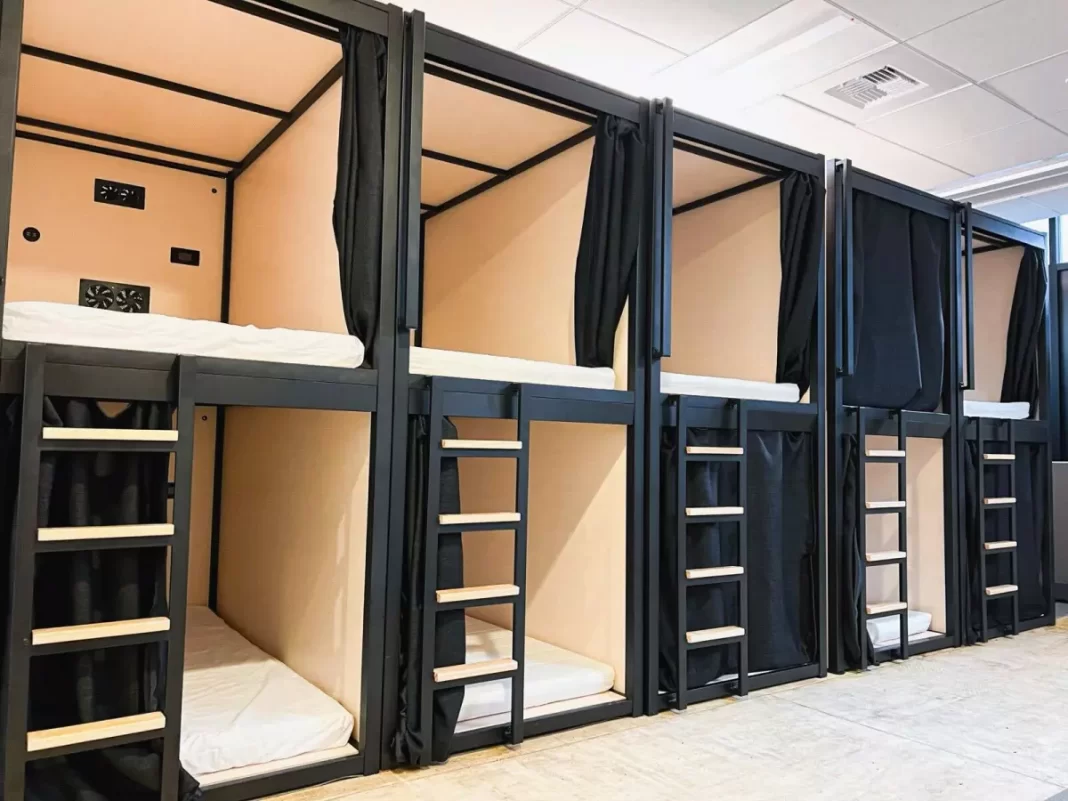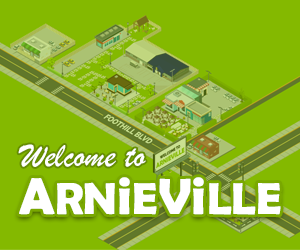Amid California’s ongoing housing crisis, creative approaches abound.
Whether in RV’s, tiny homes, ADUs or other improvised forms of shelter, Californians continue to push the boundaries of traditional housing in search of affordability.
Enter the pod. Though tiny sleeping spaces within shared buildings are not new, they have reentered the housing conversation thanks to a new startup.
With locations in Palo Alto, San Francisco and Bakersfield, Brownstone Shared Housing has converted two homes and an office space into dwellings for dozens of people, with rents ranging from $500 to $900 per month.
California Lawmakers vote to ban Mandatory Evictions for Arrested Tenants
The basic pods are a very cozy 3.5 feet wide and 4 feet tall, just big enough to fit a twin mattress. They feature amenities such as charging stations, LED lights and individual climate control systems.
Residents share bathrooms and utilize storage lockers for their belongings, most of which won’t fit into the pods.
And even though $500 to $900 may sound like a lot for such limited space, the rates are far cheaper than most alternatives on the traditional rental market.
In Bakersfield, the median studio apartment rents for $995, according to Zillow. In San Francisco, the figure is $2,200. And in Palo Alto, the median studio rents for $2,300.
California’s housing crisis has been a key factor in a mass departure of people from the state. Some 500,000 more Californians left in a recent two-year period than arrived. And about 40% of the state’s residents are considering leaving, according to a recent poll, with housing cited as a main concern.
In a post on X, the social media site formerly known as Twitter, Christian Lewis, the founder of an artificial intelligence startup, said he is living in the San Francisco pod community for a month.
“Several AI founders and indie hackers here,” he wrote, and “the downstairs lounges are actually nice.” He said the building was occupied by about 20 people and featured five bathrooms and two showers.
Aside from saving money, Lewis wrote, the benefit of pod living included that “there’s a lot of cool people here too.”
The company’s founders, James Stallworth and Christina Lennox, have themselves experienced housing insecurity.
Stallworth, 31, grew up in San Bernardino. His education at Stanford took more than four years, and after his fourth year the university stopped providing him housing.
He couch-surfed and found a free option in the basement of a Palo Alto hacker house that allowed him to stay in exchange for his help developing a website. “Free was about all I could afford,” he said, so the house was an attractive option.
At the hacker house, Stallworth saw doctors, students and more congregating in a room with 20 child-sized bunk beds. “I realized there was a need for people,” he said, but decided he could provide something better.
He got a job at the California state auditor’s office, and there he met Lennox. “She had struggled with housing as well,” he said, and went “from being basically homeless to actually owning several properties.”
Lennox, 29, and Stallworth quit their jobs three years ago, started their company and opened the first house — a converted rental home in Palo Alto — a year later.
The Bakersfield pods are located in a house Lennox owns. And business is booming.
“We have 50 beds between our three properties,” Stallworth said, “and 49 are booked.”
The co-founder said this is just the beginning. “Our goal is to solve the problem,” he said of the housing crisis, “so we’re definitely planning on expanding.”




